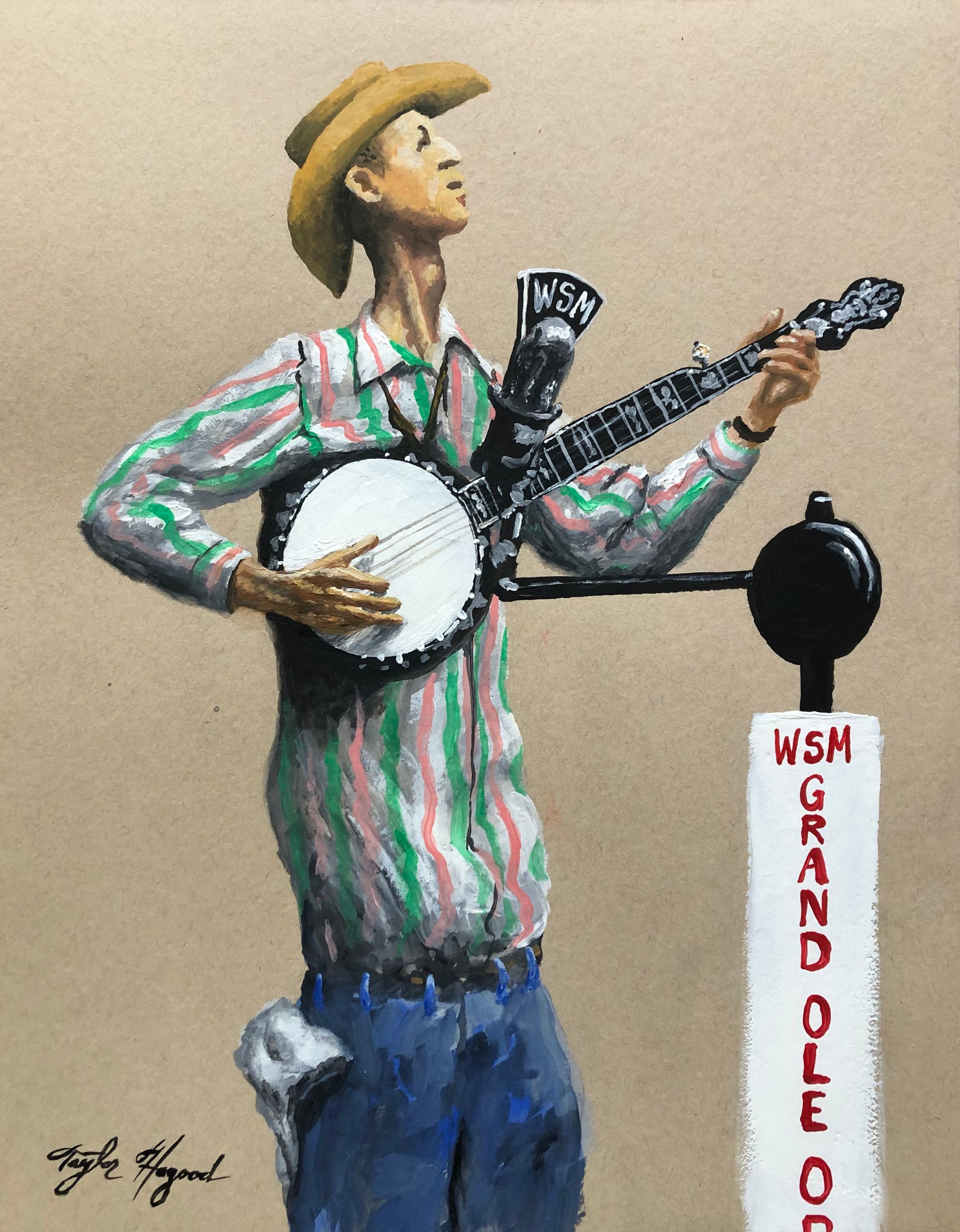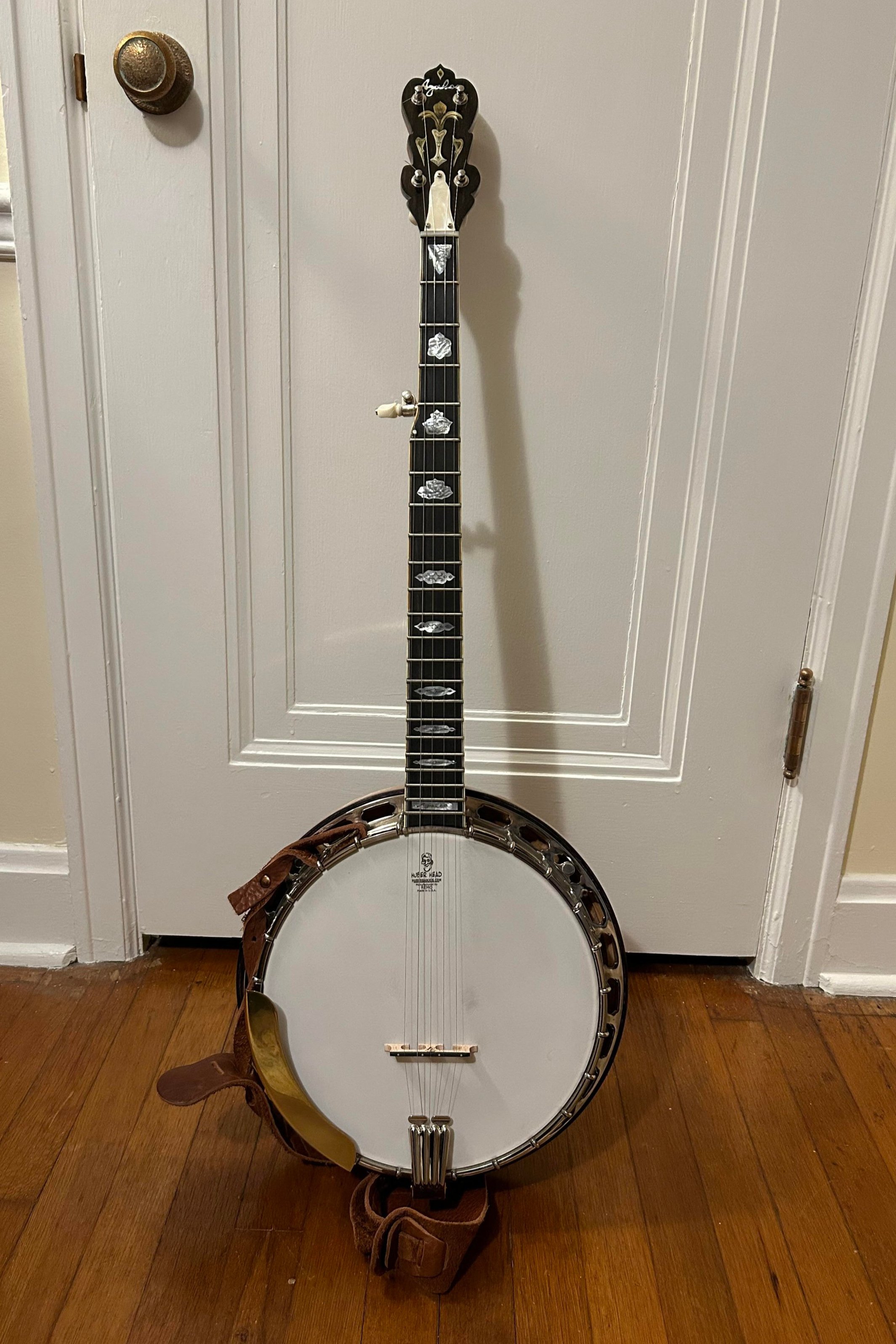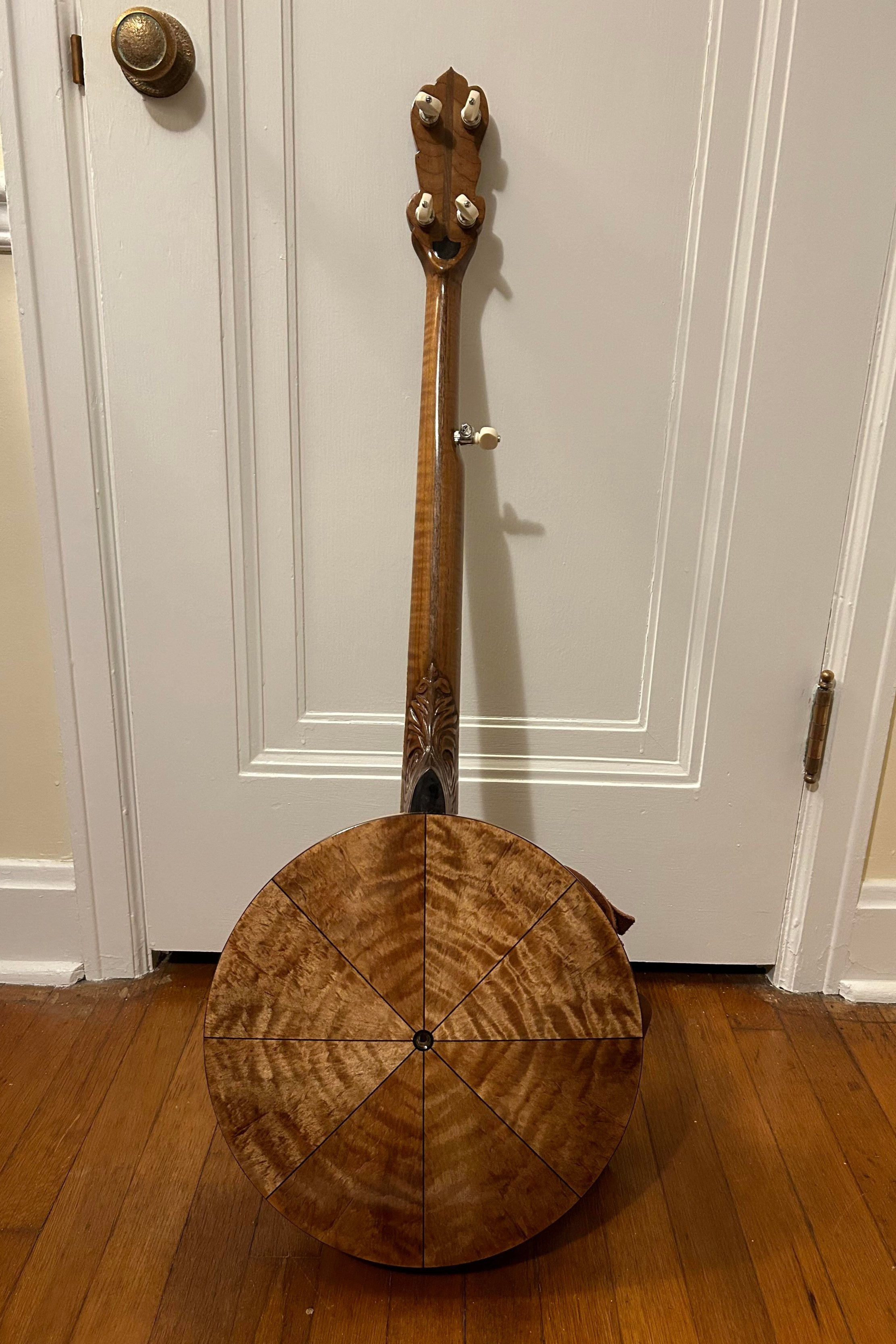Podcast Episode - Taylor Hagood on Stringbean, Persistence, and the Problem of Cutting a New Path
Taylor Hagood
Banjo player and comedian David Akeman, known essentially all of his professional life as Stringbean, lived the kind of rags-to-riches story that was supposed to come with a happy ending.
On this episode of News from the Peak, we talk to Professor Taylor Hagood about Stringbean and the work—the very real and often quite fragile work—of writing a book about someone who has tended beseen as only important in death.
Stringbean: The Kentucky Wonder
Born in 1915 to a farming family in the hills of Kentucky, he went from a New Deal-era work camp to the challenging but creatively rewarding life of a traveling musician. Hard working and seemingly down to earth, he played a part in creation of the genre we now know as bluegrass, only to have that path undercut by the arrival of rock and roll. But by the end of the 1950s, his career came roaring back, buoyed by two distinct but related cultural trends: the so-called folk revival and the growth of the country music industry. Akeman’s fame peaked at the end of the 1960s and early 1970s, when he parlayed his longstanding ties to the Grand Ole Opry into role on the musical comedy show Hee Haw.
Aside from the annual purchase of a new Cadillac Coupe de Ville—seemingly as much a part of his hillbilly persona as the tiny pants and nearly knee-length shirt that he wore to exaggerate his naturally long, lean frame—he barely spent the money that fame brought him. The small cabin outside of Nashville, Tennessee, that he and his second wife, Estelle, lived in until the day they died had low ceilings, no bathroom, and only a fireplace for heat. He hunted and fished for some portion of their food and kept a lot of his money in cash, rolled up in a thick wad.
Akeman’s remarkable life ended one Saturday evening in 1973—an event that changed Nashville and the country music business in ways that can still be felt today. After finishing Akeman’s regular show at the Grand Ole Opry, Estelle drove the two of them back to the cabin, where they were seemingly alerted to the presence of intruders. Akeman burst into the cabin, gun blazing, but was killed when one of the thieves returned fire. Estelle was chased down and killed while kneeling down, begging for her life.
YOU CAN FIND THE PODCAST ON:
SPOTIFY, APPLE PODCASTS, GOOGLE PODCASTS, IHEART RADIO, AND ANCHOR.
Understanding the Life and Death of a Beloved Figure
The full story of David and Estelle Akeman’s lives, their murder, and the surreal trial that followed is the subject of Professor Taylor Hagood’s meticulous, warm-hearted, and quietly sweeping new book Stringbean: The Life and Murder of a Country Music Legend.
The first two-thirds are devoted to gathering up the threads of Stringbean’s early life and his rise to fame. It’s a task that no one has ever attempted before in a serious way and one that leads Hagood into wonderful disquisitions on topics as varied as the history of the banjo, the relationship between what was long called hillbilly music and minstrelsy, and the transformation of Nashville during the second half of the twentieth century.
The last third of the book recounts the search for David and Estelle’s killers and the eventual trial of at least two of them: the cousins John and Doug Brown. Full of familial bullying, political showmanship, and enough cocaine to make you think it happened in the 1980s, this section also puts to rest a number of legends that have grown up around the murder, while also raising questions that we may never be able to answer.
As listeners to the podcast will hear, Hagood is as engaging a speaker as he is a writer. A professor of literature at Florida Atlantic University, Hagood has a distinguished career as a scholar of William Faulkner, among other writers, and is a teacher and lecturer of no small renown. Alongside all of that, he somehow finds time to perform magic and sing and play piano and banjo. A skilled visual artist and craftsman, he recently built a banjo that uses the same resonator as the one most closely associated with Stringbean (the Vega #9 Tubaphone) and closely follows it in other elements of its design.
That’s the banjo you can hear Hagood play in these three tracks that he very generously recorded for us. The first two—“Hot Corn, Cold Corn” and “Pretty Polly”—are closely associated with Stringbean and Hagood plays them in the clawhammer style that Akeman favored.
To hear more about Stringbean, the murders, and, heck, the very nature of country music itself, please listen to the podcast.




